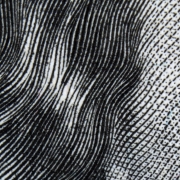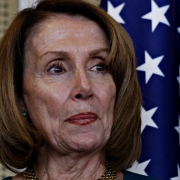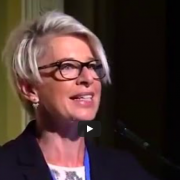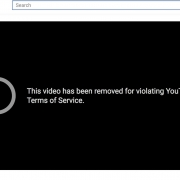The Decline In The Institution Of Journalism Has Dragged Us Back To The Eighteenth Century.
Journalism has not always been understood as a formal profession, but in the course of the twentieth century it went through a transformation that left it with all the characteristics of one, and with links and similarities to many other core professions. Like those other professions, journalism in our day confronts a crisis.
Journalism is not in crisis in every respect, of course. Demand for its offerings is strong, as public interest in current events, and politics in particular, has soared in this era of political turbulence. The supply of journalism is plentiful too, and its quality—while obviously variable—is surely on par with any golden age of reporting we might point to. The economics of journalism in the information age has been brutal, but some journalistic outfits large and small have gradually been finding effective ways to deal with it. The freedom of the press, which has not always been secure in our country, is in no real jeopardy now, or even in much question or dispute. So what’s the problem?
The crisis now confronting American journalism is a crisis of public confidence—a crisis of integrity and trust. President Trump has frequently given vent to the attitudes underlying this loss of trust. “The Fake News Media has never been so wrong or so dirty. Purposely incorrect stories and phony sources to meet their agenda of hate. Sad!” So Trump wrote on Twitter on June 13, 2017. This was a thoroughly characteristic statement of his regarding the press—unusual neither in tone nor in substance. That the president of the United States would speak about the profession like this and that he would do so on a social media platform that affords him direct access to many millions of Americans on his own terms are marks of the peculiar situation of journalism, and especially political journalism, in contemporary American life.
The trouble, moreover, is not so much about trust in individual journalists, or even about trust in particular publications, networks, or platforms—though some come in for more criticism than others. Rather, it is a matter of trust in American journalism as a whole, or at least trust in so-called mainstream journalism as an institution, understood as part of the array of institutions that compose the American establishment.
American journalists have never been at ease understanding their work as part of such an array of institutions. Journalism in a democracy always prides itself on its ability to hone a certain civic skepticism, to hold leaders to account, to uncover important facts hidden from the public, and to enable citizens to assess government officials. In this sense, American journalism sometimes imagines itself to be countercultural or an anti-establishment force like the muckrakers of old.
There are, of course, elements of this way of thinking and operating in the work of contemporary journalism. But journalism in America underwent a multi-decade process of institutionalization, over the first half or so of the twentieth century, that fundamentally transformed its character. By the latter decades of that century, political journalism had largely come to be practiced by highly educated cultural elites in America’s major cities, and many of the most prominent media enterprises came to be owned by large corporations or the very wealthy. Journalists fell into the habit of applying their skepticism mostly toward critics of elite institutions and challengers to elite norms, and their work had come to be implicitly protective of what might be called an establishmentarian status quo.
Yet most political journalists never came to conceive of themselves and their work in this way and so were not prepared to defend themselves against a rising tide of anti-institutional sentiment. That tide has continued to rise in this century. American journalism, like most of our major institutions, has been subject to intense social, cultural, and economic pressures that have undone some of its institutional forms and character—undermining its ethic and its social standing and increasingly subjecting it to competition from a range of upstarts. America’s media giants are still largely populated by highly educated elites and largely owned by major corporations or extremely wealthy individuals, but they are now engaged in a struggle for dominance with less-established competitors of various types.
No one imagines that the major newspapers or television networks have some inherent claim on our trust or attention. In this sense, American journalism offers an instance of a larger pattern in our national life, as public trust in nearly every profession has plummeted in recent decades while the culture has grown far more variegated, fragmented, and diverse. But the crisis of American journalism is especially acute because journalism conveys information that is only valuable to the degree it is deemed reliable, so a crisis of confidence presents it with a distinctly challenging problem.
Perhaps above all, the media landscape now resembles the circumstances of journalism in the early republic—when barriers to entry were relatively low and the media environment was teeming with mostly small voices. One telling artifact of that era is a brief essay published anonymously by Benjamin Franklin in 1789 called “An Account of the Supremest Court of Judicature in Pennsylvania, viz., The Court of the Press.” Like much of Franklin’s writing, this short essay is at least partially satirical. But it advances a very serious point: that anyone with access to a printing press can make wild, unfounded accusations and destroy the reputation of anyone he might choose to target. The press has great power with no clear limits on its use, Franklin worried. It is in this sense like a court without law. “It may receive and promulgate accusations of all kinds against all persons and characters among the citizens of the State, and even against all inferior courts,” he wrote, “and may judge, sentence, and condemn to infamy, not only private individuals, but public bodies, etc., with or without inquiry or hearing, at the court’s direction.”
This court, Franklin noted, is not governed by any clear rules: The accused is allowed no grand jury to judge of the truth of the accusation before it is publicly made, nor is the name of the accuser made known to him, nor has he an opportunity of confronting the witnesses against him, for they are kept in the dark as in the Spanish court of Inquisition. Nor is there any petty jury of his peers, sworn to try the truth of the charges. The proceedings are also sometimes so rapid that an honest, good citizen may find himself suddenly and unexpectedly accused, and in the same morning judged and condemned and sentence pronounced against him, that he is a rogue and a villain. Yet, if an officer of this court receives the slightest check for misconduct in this his office, he claims immediately the rights of a free citizen by the constitution and demands to know his accuser, to confront the witnesses, and to have a fair trial by a jury of his peers.
The danger of this pseudo court abusing its power is thus immense, Franklin suggested. The press has the power to purvey lies—fake news, we might say—or (to recall President Trump’s terms above) to spread “purposely incorrect stories and phony sources to meet their agenda of hate.” At the core of this complaint is the assertion of an absence of standards. As Franklin understood, this was a function not of the concentration of media power but precisely of its dilution. The power of the press in his time, Franklin wrote, was available to anyone who, “by education or practice in scribbling, has acquired a tolerable style as to grammar and construction, so as to bear printing; or who is possessed by a press and a few types.”
Anyone could become a menace in the court of public opinion, and his victims would have little recourse. “For if you make the least complaint of the judge’s conduct,” Franklin wrote, “he daubs his blacking balls in your face wherever he meets you; and, besides tearing your private character to flitters, marks you out for the odium of the public, as an enemy to the liberty of the press.”
To Franklin, there seemed no real remedy to this problem except placing constraints upon that liberty of the press. “If by the liberty of the press were understood merely the liberty of discussing the propriety of public measures and political opinions, let us have as much of it as you please,” he wrote. “But if it means the liberty of affronting, calumniating, and defaming one another, I, for my part, own myself willing to part with my share of it whenever our legislators shall please so to alter the law, and shall cheerfully consent to exchange my liberty of abusing others for the privilege of not being abused myself.”
That remedy has, with good reason, generally been ruled out of bounds in our politics, at least beyond very narrowly constructed libel laws. Franklin wrote just over a year before the Bill of Rights was ratified, but he was well aware of the abiding commitment to the freedom of the press in American public life—a cause he had championed himself at times. He seems to have intended to raise the question of how the power of journalism to abuse its subjects might be contained.
This extract is from Levin, Yuval. A Time to Build (pp. 71-79). Basic Books. Kindle Edition. Copyright (c) 2020 by Yuval Levin.







